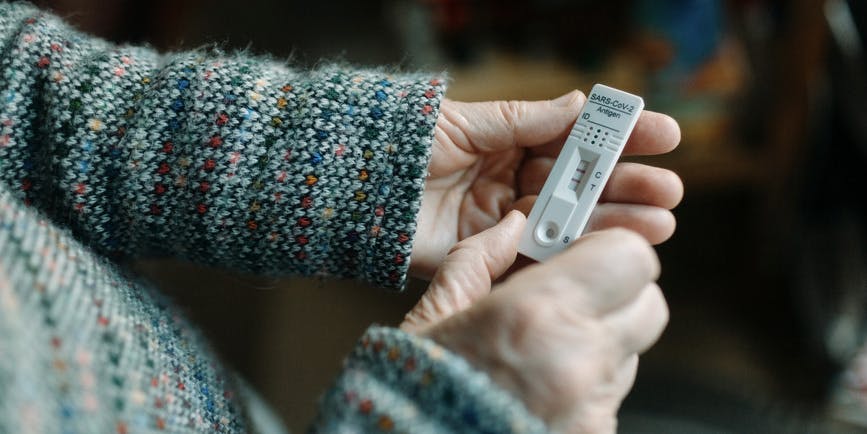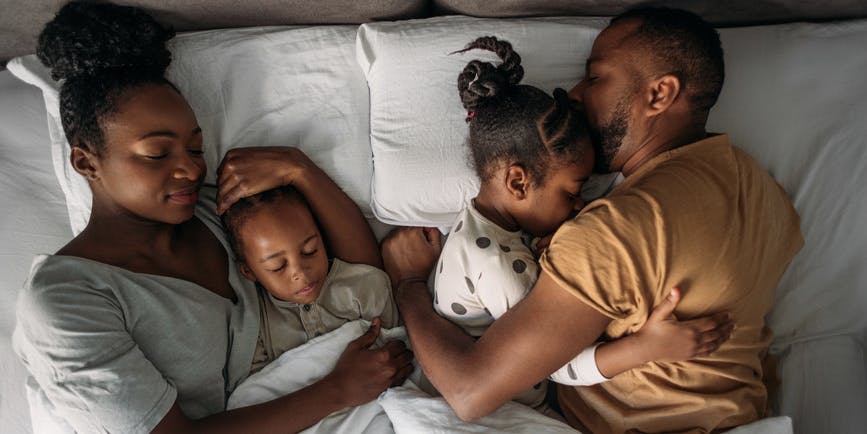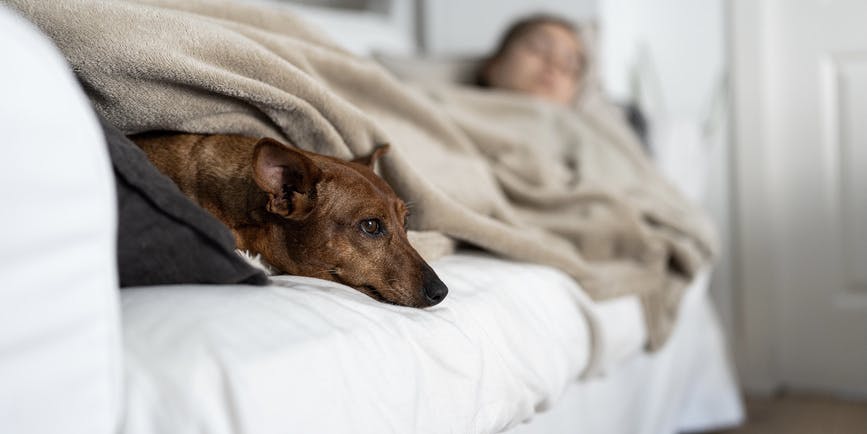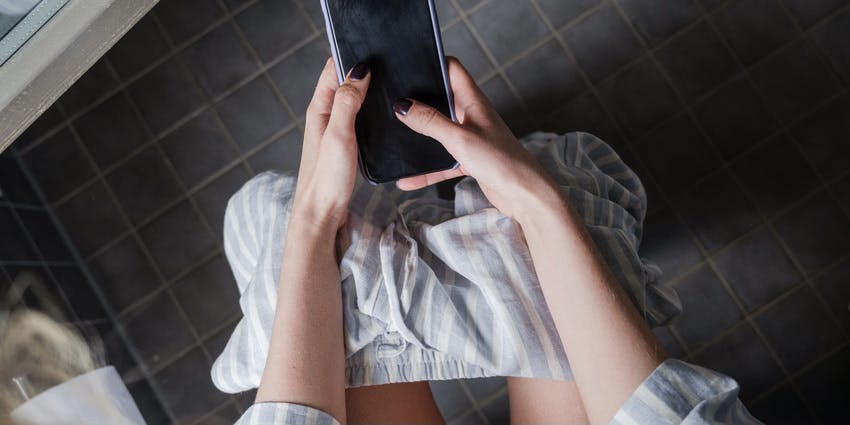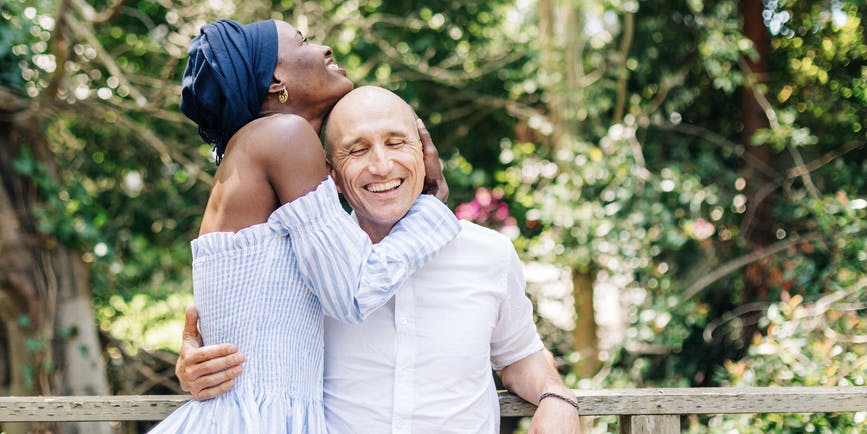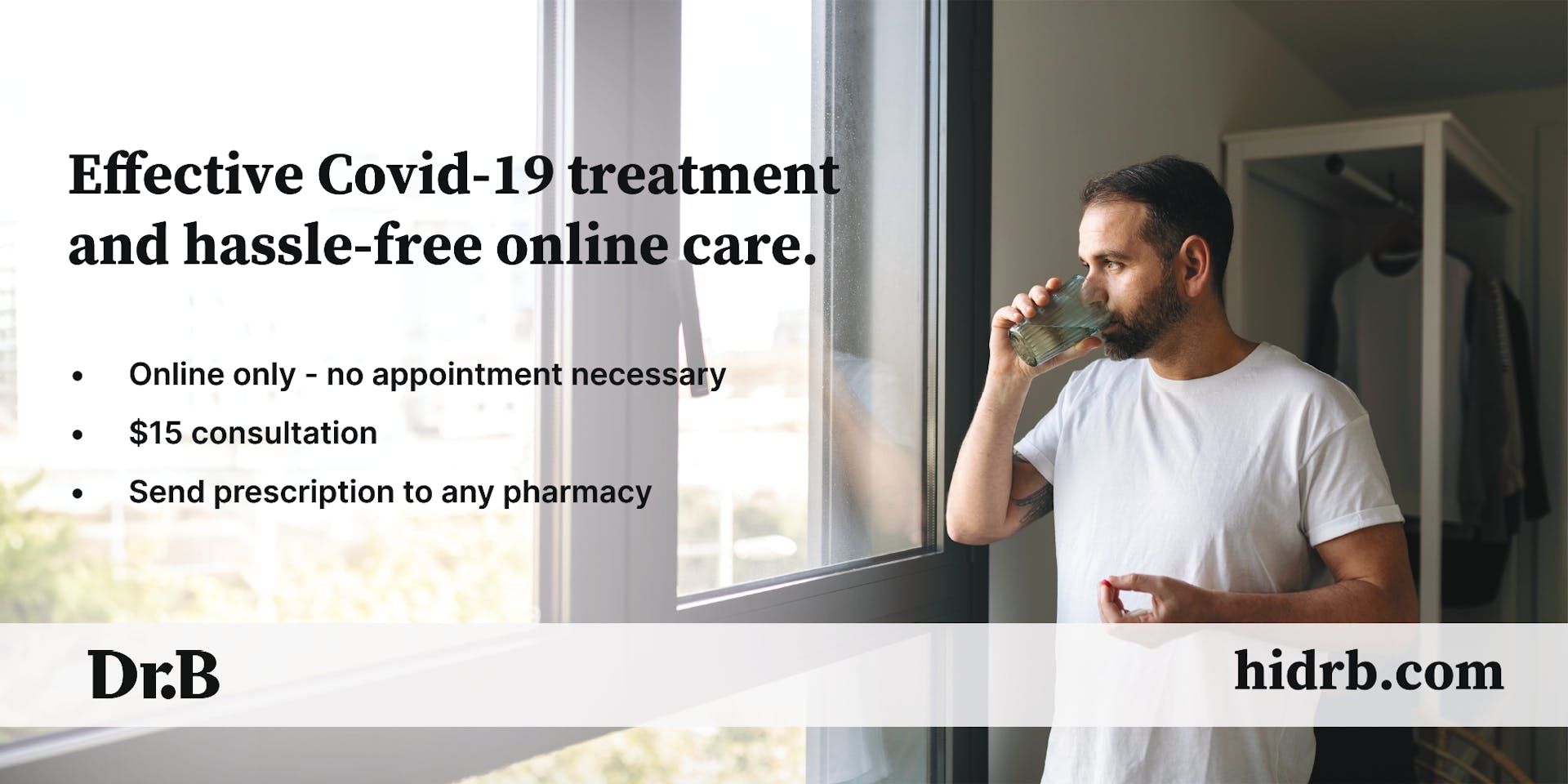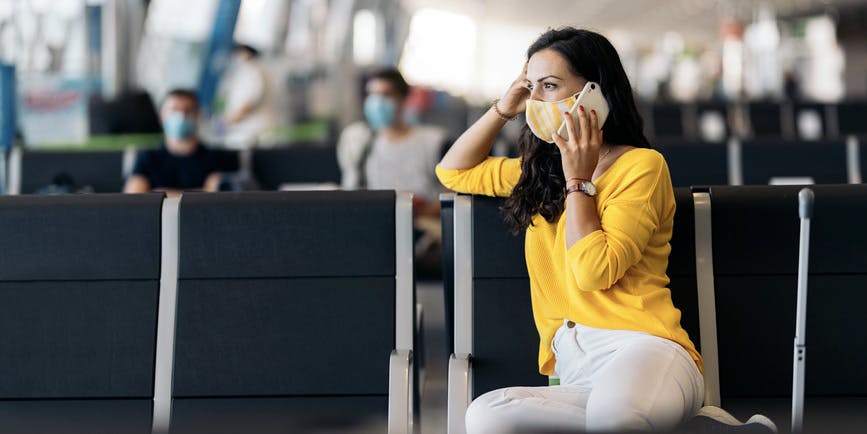
How long does Covid-19 take to incubate?

Topics
Key Points:
- The incubation period of a disease is how long it takes to start showing symptoms after getting infected. It’s different for every disease and can depend on factors like variants, individual health and vaccination status.
- Newer Covid variants seem to have shorter incubation periods than earlier variants. The current incubation period for Covid-19 is around three to five days.
- Most people start to feel sick five days after getting infected. But some feel sick as soon as two days after exposure—and others can take up to 14 days to show symptoms.
Trying to figure out your risk of getting infected with Covid-19 can be more confusing than a high school biology class! Deciphering viral load, incubation period, symptom onset—it’s a lot to figure out.
With Covid-19 cases, hospitalizations and deaths rising through the holiday month, chances are you may have been exposed to Covid-19. If so, you probably want to know one thing: “Am I going to get sick?”
We’re here to break down everything you need to know about Covid incubation periods. And if you do get sick, Dr. B can help. Learn more about our 15 online consultations for Covid-19, including at-home treatment options that can help you get better faster.
What’s an incubation period?
An incubation period is the time it takes to develop symptoms after you’ve been infected with a disease.
For example, you might get infected with a virus on Monday. The virus is in your body, but there aren’t enough copies of the virus to cause any symptoms. On Thursday, you notice a tickle in your throat. On Friday, you have a sore throat, start coughing and run a fever.
Why does it take so long to start feeling sick? Because it can take several days for the virus to make enough copies of itself to cause noticeable symptoms.
The incubation period is different for every pathogen—the medical term for germs that cause disease, like bacteria or viruses. Other factors can also impact incubation. These include how much of the virus you were exposed to, if you have other health conditions and if you’ve been vaccinated.
Covid-19 incubation period: how long is it?
The virus that causes Covid-19 is called SARS-CoV2. The virus has changed a lot since it first emerged in 2020. There are now different variants of Covid-19, like the Delta variant and Omicron variant.
Each variant acts a little differently in the body. Some variants cause more severe illness than others. Others are more contagious. And different variants have different incubation periods.
Initial research showed that the average incubation period of Covid-19 was five days with a range of 2-14 days. That meant some people felt sick as early as two days after exposure, while others didn’t show symptoms until day 14.
Because the virus adapts and changes over time, new research shows that more recent variants can make people feel sick even faster. Now, many people show symptoms two to three days after exposure.
Here are the average incubation periods, according to subvariant:
- Apha: 5 days
- Beta: 4.5 days
- Delta: 4.41 days
- Omicron: 3.42 days
Is Covid contagious during the incubation period?
Incubation time matters because you can infect others even if you don’t feel sick. That’s why public health officials recommend that you stay away from others if you’ve been exposed to Covid-19.
The tricky thing about Covid is that you can spread the disease even if you don’t have symptoms. In fact, you’re most contagious one to two days before you start feeling sick!
That’s why it’s essential to stay away from others after you’ve been exposed—you could spread the virus without even realizing you’re ill.
When is the best time to test for Covid-19 after exposure?
It takes a few days after exposure to know if you have the disease. That’s because it takes some time for the virus to make enough copies for tests to detect the virus.
Public health officials recommend doing an at-home antigen test or in-office PCR test five days after you’ve been exposed to Covid-19. Most infected people will have enough copies of the virus (a viral load) to test positive by this time.
But even if you get a negative test result on day five, you might still be infected.
In some people, the virus can take longer to replicate. And human error can mean that an at-home test wasn’t done correctly, giving the wrong result. Plus, at-home tests aren’t as sensitive as PCR tests—which are done in a lab with specialized equipment.
Here’s what to do after you’ve been exposed to Covid-19:
- Wear a mask and take precautions as soon as you know you’ve been exposed, even if you don’t feel sick. Continue social distancing and wearing a mask for ten days.
- If you have symptoms, test right away.
- If you don’t have symptoms, wait to test at least five full days after exposure.
- If you don’t have symptoms and test negative after five days, repeat the test 48 hours later. If you still get a negative test, take a third test 48 hours after that.
- If possible, get a PCR test from a healthcare provider—these tests are the most accurate.
How to prevent Covid-19
The Department of Health and Human Services (HHS) ended the Covid-19 public health emergency in May 2023. This means that enough people have been vaccinated to slow the spread of the disease. Also, health care services like testing and treatment options make dealing with the virus easier.
But it’s still possible to get Covid. And while many people are vaccinated or have some immunity to Covid, some people can get very sick. This is especially true for babies, kids, older adults and people with compromised immune systems or other health conditions (like diabetes or heart disease).
The best way to prevent Covid-19 is to get vaccinated, as the vaccine lowers the chance of infection. Most vaccinated people experience a milder form of the disease if they still get infected because the vaccine helps the immune system fight the virus more quickly.
Here’s how to protect yourself and others from Covid-19:
- Get vaccinated. Covid-19 vaccines are safe and effective.
- Get a booster shot according to your provider’s recommendations.
- Wash your hands with soap and water regularly.
- Cover your coughs and sneezes with a tissue or the crook of your elbow.
- Stay home when you’re sick.
- Wear a well-fitting mask in crowded places.
- Avoid touching your eyes, mouth and nose.
- Get early treatment for Covid-19 if you start to show symptoms.
Where to get treatment for Covid-19
If your symptoms are mild and you don’t have any significant health issues, it’s best to rest at home and stay away from others.
But if your symptoms are severe, you have other health conditions, or if you’re over 50, call your health provider. You’re also at higher risk of severe infection if you haven’t been vaccinated.
If you’re at risk for severe Covid, antiviral medications like Paxlovid and Molnupiravir can help you recover more quickly. But these medicines only work if you start them within five days of your first symptoms.
Looking for a convenient way to get treatment for COVID-19? Dr. B has you covered. Just fill out a short health questionnaire. Dr. B will connect you with a licensed medical provider who can send a same-day prescription (if appropriate) to the pharmacy of your choice.
Sources:
Centers for Disease Control and Prevention. (2023). Covid-19.
Centers for Disease Control and Prevention. (2023). Covid-19 data tracker.
Centers for Disease Control and Prevention. (2023). Covid-19 testing: what you need to know.
Centers for Disease Control and Prevention. (2023). People with certain medical conditions.
Centers for Disease Control and Prevention. (2022). What to do if you were exposed to Covid-19.
Dhouib W, et al. (2021). The incubation period during the pandemic of COVID-19: A systematic review and meta-analysis. Systematic Reviews.
Hart W.S., et. al. (2021). High infectiousness immediately before Covid-19 symptom onset highlights the importance of continued contact tracing. Elife.
MedlinePlus. How to stop the spread of Covid-19.
US Department for Health and Human Services (2023). Fact sheet: End of the Covid-19 public health emergency.
Virlogeux, V., et. al. (2015). Brief report: Incubation period duration and severity of clinical disease following severe acute respiratory syndrome Coronavirus infection. Epidemiology.
Wu, Y., et al. (2022). Incubation period of Covid-19 caused by unique SARS-CoV-2 strains: A systematic review and meta-analysis. JAMA Network.
Topics
Sign up for the free Dr. B newsletter for a weekly report on the latest in healthcare + research-based advice for staying healthy and mentally well.
Related articles

